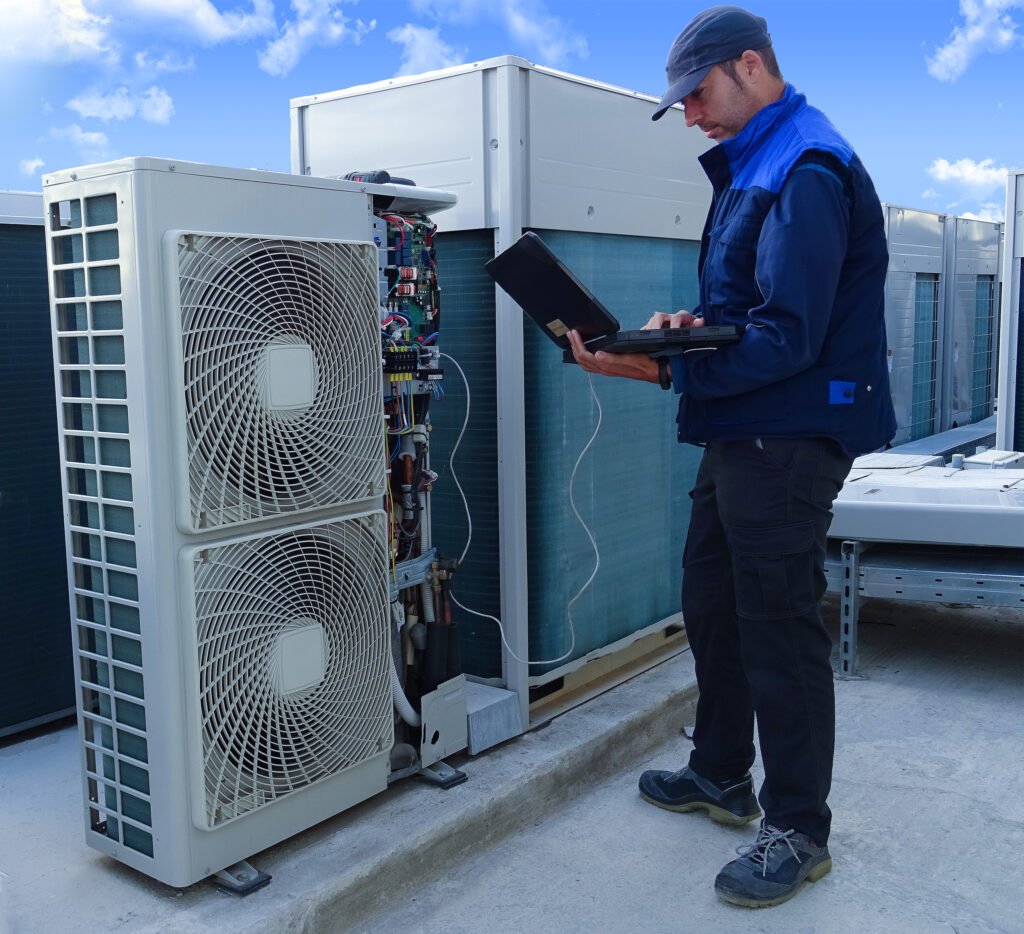The lifespan of an AC unit depends on several factors, but with good maintenance, most split AC systems can last anywhere from 10-15 years. Here’s a detailed breakdown of the key influences on Air Conditioning longevity:
Factors Affecting Air Conditioning Lifespan:
- Maintenance: Regular professional maintenance is the single most critical factor influencing Air Conditioning lifespan. This includes annual cleaning of coils, checking refrigerant levels, and ensuring proper airflow. Consistent maintenance prevents wear and tear, improves efficiency, and catches minor issues before they snowball into major problems.
- Climate: AC units in hot, humid climates work harder and experience more wear and tear compared to units in mild climates. If you live in a scorching desert, you might need to replace your AC sooner than someone in a coastal region with moderate temperatures.
- Usage: The less you use your AC, the less wear it experiences. If you live in a climate where you only need AC for a few weeks or months per year, this can significantly extend its lifespan.
- Quality: Higher-quality AC units, built with robust materials and well-known brands, tend to last longer than lower-quality models. Investing in a reputable brand can provide better durability and a longer lifespan for your Air Conditioning.
- Installation: Proper installation is crucial for Air Conditioning longevity. An improperly installed unit can put undue strain on components and lead to premature failure. Ensure a qualified technician installs your AC according to manufacturer specifications.
Extending AC Lifespan:
By following these tips, you can maximize your Air Conditioning’s lifespan:
- Schedule Regular Maintenance: Aim for annual professional maintenance to keep your Air Conditioning unit in top shape.
- Change Air Filters Regularly: Clean or replace air filters according to the manufacturer’s recommendations, typically monthly or seasonally.
- Keep the Unit Clean: Clear debris from around the outdoor unit to ensure proper airflow.
- Address Issues Promptly: Don’t ignore minor problems. A prompt fix can prevent them from escalating into bigger issues later.
Reaching 20 Years or More:
While 10-15 years is a typical range with good maintenance, some Air Conditioning units can reach 20 years or even longer. This usually requires exceptional care and ideal conditions like:
- Meticulous Maintenance: Impeccable maintenance practices over the years significantly improve the odds of reaching 20 years or more.
- Favorable Climate: A mild climate with moderate temperatures and low humidity puts less stress on the AC unit.
- Limited Use: Minimal use translates to less wear and tear, extending the lifespan.
- High-Quality Unit: Investing in a top-of-the-line Air Conditioning unit from a reputable brand goes a long way.
- Proper Sized Unit: An AC unit correctly sized for your space ensures it doesn’t have to work excessively to maintain temperature.
Replacement Considerations:
Even with excellent care, Air Conditioning units eventually reach the end of their lifespan. Here are some signs that indicate it might be time for a replacement:
- Age: If your AC unit is over 15 years old, it’s nearing the end of its expected lifespan and may be less efficient or reliable.
- Decreased Efficiency: If you notice a significant rise in energy bills or your AC struggling to cool your home effectively, it could be a sign of reduced efficiency.
- Frequent Repairs: If your AC unit requires frequent repairs, especially costly ones, replacing it might be more cost-effective in the long run.
- Noise Levels: Increased noise levels can indicate failing components and potential breakdowns.
By understanding these factors and taking proper care of your AC unit, you can expect it to function reliably and efficiently for many years to come.
Looking to install a commercial HVAC System or Duct work in your Business Area?
Contact Vipul Ac to learn about our HVAC Service
Call +91 9825636606 Today.


